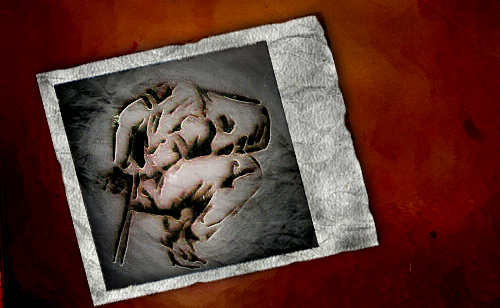Growing up in Tunisia during the ’80s and early ’90s, I sometimes gleaned information from adults around me who whispered that the opponents of the regime — first the Communists and then the Islamists — were tortured in secret chambers where the services of a doctor were used, sadly, in an evil way.
People at that time said that the role of the doctor was to make sure that during the torture session, the prisoners are harmed severely but not enough to be killed. In a nutshell, the doctors were there to make sure that the torturers didn’t send the prisoners to the “other world.” Ignoring all the details around these stories, I felt horrified.
I always wondered how a noble profession like medicine could be used by a despotic and autocratic regime to get rid of its opponents. I also wondered how those doctors were willing to “play” such a role and help a vile regime remain in power.
Even after the change of regime in Tunisia, I didn’t hear about any doctor being blamed, let alone arrested, for participating in torturing citizens. To the contrary, it took 22 years for Amnesty International and other human rights groups to conclude that Faisal Barakat, a 25-year-old Tunisian university student, was killed under torture in 1991 while he was in garde à vue at a police station. I don’t know whether a doctor was present during his interrogation sessions, and if there will be any charges brought against the torturers and police.
When I immigrated to Canada during the early ’90s, I was a million light years away from thinking that something as macabre happened in the institution where I chose to pursue my graduate studies.
Indeed, it was revealed during the last few years that the Allan Memorial Institute in the Royal Victoria Hospital at McGill University played a crucial role in the development of torture techniques. The torture research was funded by the CIA alongside the Canadian government.
We know today that Dr. Ewen Cameron, a psychology professor, was the scientist in charge of this mission. His project, known as MK-ULTRA subproject 68, aimed to study the effect of sensorial deprivation on patients and its applications to prisoners.
About half a century after they were conducted, there are indications that Cameron’s experiments reappeared in torture methods at places like Guantanamo Bay. A recently released report by Columbia University’s Institute on Medicine as a Profession and Open Society Foundations acknowledged that the U.S. administration gave the green light to doctors in the army to use torture techniques (publicly referred to as “enhanced interrogation” methods) such as sleep deprivation and waterboarding.
Moreover, the force-feeding of detainees engaged in hunger strikes and turning a blind eye on the medical conditions of certain detainees are other unethical strategies that were used by the medical staff in Guantanamo Bay.
Once again, I find myself asking the same questions I had 20 years ago. How can a highly regarded profession such as medicine be hijacked by a narrow ideology and used for purely partisan and evil purposes?
National security and protection of the nation have been the traditional heavyweight excuses provided by these governments, but what I personally think is behind the justification of such unethical methods is the continuous dehumanization of the detainees and torture victims.
When my husband was tortured in a Syrian dungeon, he told me that most of his torturers were from the Alawite sect. Knowing that Sunnite and Alawite groups never liked each other, and knowing that the Alawite population always felt the inferiority complex of coming from rural areas, one comes to understand that the task of the torturers became much more “acceptable” if the victim came to represent an individual not as a human being but more as a “Sunnite,” or a higher social-ranking citizen, or in brief, an oppressor: the Other.
The same thing goes for the Tunisian torturer working in the basements of the Ministry of the Interior as well as his accomplice, the medical doctor standing beside him. The student who was arrested was represented by the authority as a troublemaker, an intellectual, an anarchist, an Islamist who would destabilize the country and throw away their respective economic and social interests. Torturing or killing him becomes much more “bearable” on their conscience.
The same dehumanization is found in what is called the “War on Terror.” It doesn’t matter if you are a doctor who took the Hippocratic oath and graduated from a prestigious American medical school — the question of ethics isn’t even relevant. What this war tries to achieve (and has frankly done so) is to make all suspects and detainees look the same and fit the profile of a savage with radical beliefs who doesn’t even deserve the right to live.
It is a sad state of affairs but I came to understand that it is the new reality. And I am afraid we have probably not seen the worst yet.
Monia Mazigh was born and raised in Tunisia and immigrated to Canada in 1991. Mazigh was catapulted onto the public stage in 2002 when her husband, Maher Arar, was deported to Syria where he was tortured and held without charge for over a year. She campaigned tirelessly for his release. Mazigh holds a PhD in finance from McGill University. In 2008, she published a memoir, Hope and Despair, about her pursuit of justice, and in 2011, a novel in French, Miroirs et mirages.
Image: Lance Page / t r u t h o u t, Adapted From: bright-political / flickr



